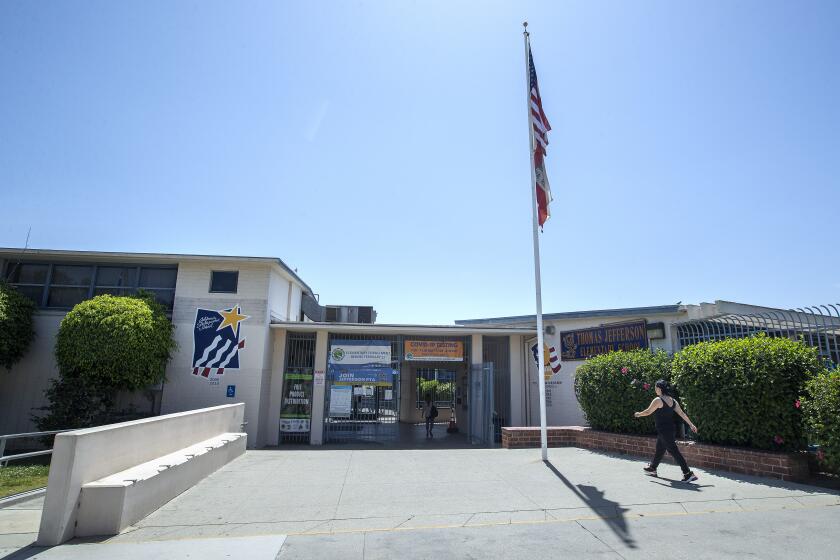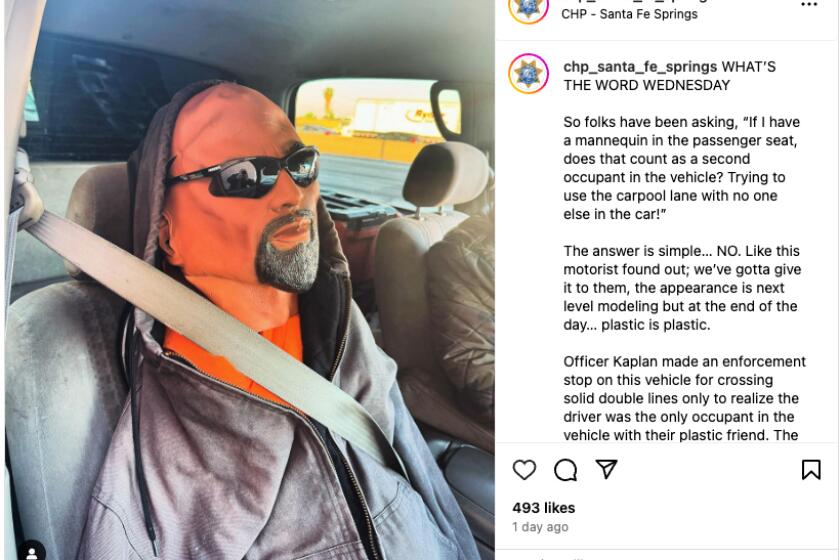Constitution Saves Accused Ex-Judge
On the surface, the People vs. Ronald Kline seemed like a sure thing for prosecutors. Federal authorities had child pornography and a sexually explicit diary obtained from the former Orange County judge’s computers. State officials had the testimony of a man who said Kline had molested him as a boy.
Now, barring a successful appeal, Kline, who is still under house arrest, will soon be free -- not because the allegations were proved false but because of unrelated civil rights concerns that undercut both cases against him.
To some legal experts, there is a moral to the story: The system worked.
“He did not get off on a technicality,” said Laurie Levenson, a Loyola Law School professor who has followed the case. “He got off on the enforcement of his constitutional rights. He got lucky.”
On Monday, a federal judge threw out the key evidence in the child pornography case, ruling that images found on Kline’s courthouse computer were the “fruit” of an earlier illegal search of his home computer by a Canadian hacker who saw himself as working for police.
In July, a state Superior Court judge threw out the child molestation charges against Kline after the U.S. Supreme Court ruled unconstitutional a California law that allowed prosecution of old sex abuse cases. The state cannot “pick and choose when to act retroactively,” wrote Justice Stephen G. Breyer for the majority.
Both rulings, experts say, highlight the fluidity of a legal system that is designed to ensure that the rights of the accused are upheld -- even if that means some perpetrators get away.
“The whole purpose of this kind of ruling isn’t just to protect Judge Kline’s rights, but all of our rights,” said Scott Howe, an associate dean and professor at Chapman University’s School of Law. “There are much bigger issues than his case involved. Our freedom as a society is involved.”
The way the federal child pornography case against Kline unraveled also points up the challenges authorities face when handling evidence obtained from computers, an area in which legal interpretations are playing catch-up to advancing technology.
Police began investigating Kline after computer hacker Bradley Willman electronically reached into Kline’s home computer with a program he developed that tracks online activity. After finding the diary and 1,500 pornographic photos of boys, Willman contacted a Colorado-based Internet watchdog group, Pedowatch, which alerted Irvine police.
After Kline was charged in November 2001, a man who said the judge had molested him when he was a 14 years old a quarter-century earlier came forward. This prompted the Orange County district attorney, two months later, to charge Kline with five felonies under a 10-year-old state law that waives the normal statute of limitations in such cases.
Despite the double set of charges, Kline, who was seeking reelection at the time, did not resign or withdraw from the race and was forced into a runoff by a write-in candidate. When Kline then tried to take his name off the ballot, election officials refused. He was later allowed to do so by a Los Angeles judge, ending a strange election campaign that garnered national headlines.
In June, U.S. District Judge Consuelo B. Marshall in Los Angeles threw out the evidence gathered by Willman for the pornography case, saying Kline’s constitutional right to privacy was violated by the hacker’s illegal search.
Marshall ruled that Willman had worked as an informant for Canadian and U.S. authorities and believed he was doing the same for Irvine police. As an agent for the police, Willman needed a search warrant to conduct the search legally, she ruled.
And because police were led to evidence on Kline’s courthouse computer by Willman’s discovery, it too was inadmissible, Marshall said Monday.
Authorities reiterated Tuesday that Willman was not working for them. Willman has flip-flopped on that issue.
Nevertheless, Levenson says, investigators could have avoided the issue by accepting the material from Pedowatch and not searching for the hacker.
“It’s always a lot easier in hindsight to put together an investigative plan,” she said. “But the fact is there are downsides to doing too much investigation.... Your evidence is only as good as how you get it.”
Computer evidence is a legal minefield. What constitutes probable cause to search a computer? When computers are linked to one another, are separate warrants needed when a search extends from one hard drive to another? What types of material can and cannot be disseminated to defense lawyers as part of their discovery?
Federal prosecutors say they intend to appeal Marshall’s ruling to the U.S. 9th Circuit Court of Appeals.
More to Read
Start your day right
Sign up for Essential California for news, features and recommendations from the L.A. Times and beyond in your inbox six days a week.
You may occasionally receive promotional content from the Los Angeles Times.






